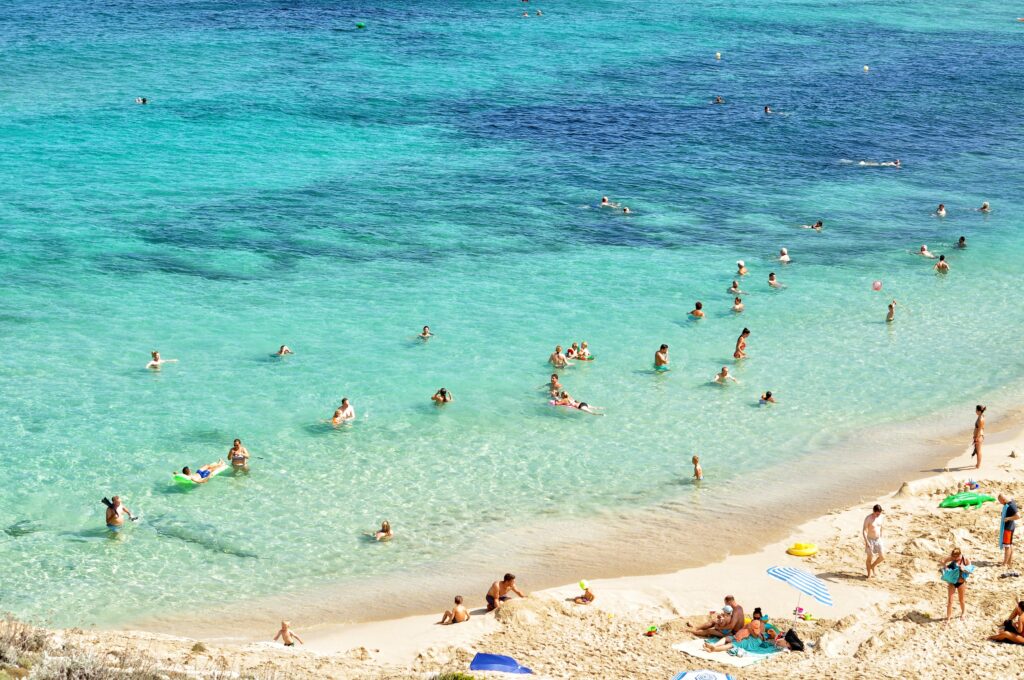Written by Kelsea Siter, Americorps KEYS member
Looking for safe sunscreen options for this summer? You have come to the right place!
Sunscreen is one of the most important steps in protecting and preventing our skin from harmful levels of radiation, sun damage, and skin cancer. Many of us buy sunscreen based on the SPF or the common brand names that we see in stores. But are these sunscreens doing us more harm than good? The lack of regulation around sunscreen allows producers to add and keep toxic chemicals that have been linked to many negative health impacts. Many sunscreen labels revolve around false advertising based on outdated and incorrect research causing consumers to believe these products are harmless. According to the Environmental Working Group, sunscreen regulations have not been updated since 2011. The Food and Drug Administration (FDA) recognizes only 2 ingredients in sunscreen as nontoxic and effective: zinc oxide and titanium dioxide. These 2 ingredients have been proven both safe and effective in preventing sun damage. Many other ingredients such as Formaldehyde, Oxybenzone, Homosalate, Sulfates, and others that are common in over 60% of sunscreens, need additional research and testing according to the FDA.
Chemicals such as Oxybenzone have proven to disrupt hormones, absorb deeply and rapidly into the skin, and have been detected in blood, breast milk, and urine. Oxybenzone is also extremely dangerous to the environment, in particular coral reefs, and has been heavily linked to coral bleaching. In 2019, the FDA released that Oxybenzone could no longer be considered harmless and effective, and that their current research on oxybenzone was linked to harmful side effects. With all of these known negative health impacts linked to chemicals common in sunscreen, it is both unclear and unfathomable why these chemicals are still put into our sunscreens. The FDA also released information about SPF, and how higher SPF is misleading and does not offer additional or even longer protection. The FDA has proposed to limit SPF at 50 in 2011, and later in 2019, at 60 SPF. These claims were never passed, and it is uncertain if higher SPF sunscreens will be taken off the market in the future.
As spray sunscreen becomes more popular around the country, it is important to highlight the negative impacts these products can have. Over 25% of sunscreens are available in a spray form, and they continue to be a common choice because of the rapid and easy application. Sprays do not ensure full skin protection, and oftentimes lead to exposed areas of the skin. According to a study completed in 2016 from the Journal of Drugs in Dermatology, only 69% of the 540 surveyed dermatologists advise their patients to use spray sunscreen. Spray sunscreen also poses concerns for respiratory health and can contain harmful chemicals that can easily be inhaled and absorbed in both kids and adults. Chemicals such as titanium oxide, commonly found in sunscreens, are linked to cancer when inhaled in great quantities. While titanium oxide is safe and effective when used on the skin, when inhaled, small particles stay trapped in the lungs and can cause asthma and allergies. Avoiding spray sunscreen, especially for kids, and swapping in a sunscreen lotion, can assure more evenly and protected skin, as well as decreased exposure to aerosols and chemicals inside spray formulas.
So what sunscreens are both safe for your body and protect your skin from the sun? Look for sunscreens that do not contain the harmful chemicals listed above such as Formaldehyde, Oxybenzone, Homosalate and many others. Titanium oxide is effective and harmless in lotion sunscreen, but avoid it in sprays. The Environmental Working Group has a full list of ingredients found in sunscreens and their concerns that can be found here. Steer clear of sunscreens with SPF over 50, which are proven to be deceptive and useless, compared to lower SPF sunscreen. Based on EWG’s ingredient list, Women for a Healthy Environment recommends Alba Botanica, Pacifica, Raw Elements, and Kabana Organic Skincare. If you are concerned about the environment, look for the “Reef-Safe” label on sunscreens, and avoid products with oxybenzone and mineral oils. The Environmental Working Group has a ranked report of sunscreens that meet their criteria and are better for you, your health, and the environment. Find the list here and don’t forget your safe sunscreen this summer!

Additional Resources:
https://www.ulta.com/p/sun-skincare-mineral-face-shade-coconut-probiotic-spf-30-xlsImpprod17761861
https://savethereef.org/about-reef-save-sunscreen.html





